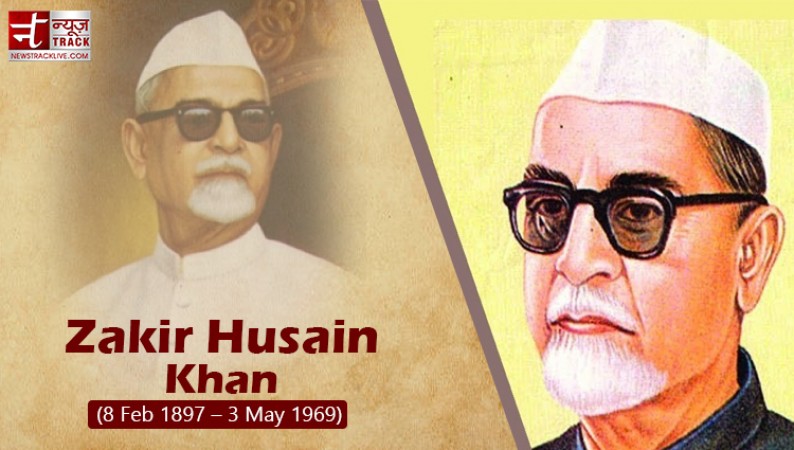
Dr. Zakir Husain Khan was born in Hyderabad State in Central India on 8 February 1897. Dr. Zakir Husain Khan was an Indian economist and politician who served as the third President of India, from 13 May, 1967, until his death on 3 May, 1969.
Early primary education for Husain was finished in Hyderabad. He attended Islamia High School in Etawah for his secondary education and later earned an Economics degree from Christian Degree College at the University of Lucknow. He transferred to Muhammadan Anglo-Oriental College, which was then associated with the University of Allahabad, where he was a well-known student leader, after receiving his degree.
With a group of students and teachers, Zakir Husain founded the National Muslim University, currently known as Jamia Millia Islamia, when he was 23 years old (a central university). Jamia developed strong ties to the Indian freedom struggle under Husain.
Career in Politics of Zakir Hussain: Dr. Zakir Husain was a renowned economist and educator who made significant contributions to the growth of contemporary India with his unrivalled intelligence and education. He was immersed in politics since he was a young child and attempted to introduce others to it through education. He advanced through the social ladders as an educator over time, becoming one of the greatest educational thinkers and practitioners of contemporary India.
For 22 years, he served as Jamia Millia Islamia's vice chancellor, working hard to elevate the institution to the rank of one of the world's preeminent centres of learning.
In October 1920, he established the National Muslim University in Aligarh under the direction of a small group of scholars and educators. After five years, they moved the university to Karol Bagh and then to Jamia Nagar in New Delhi, where Jamia Millia University was renamed.
He employed education as a key tool for India's independence after returning from Germany, while other political bigwigs focused on politics, Mahatma Gandhi's Swaraj movement, and the civil disobedience movement.
After that, he served as the president of Jamia Millia University, which was under threat of closure due to financial difficulties. He dedicated 22 years of his life to improving the university's academic and managerial standards. The institute has been a part of the Indian freedom struggle since the reign of the British. The educational institutions were committed to raising awareness among significant populations. They made clear that aggressive politics alone could not achieve national renewal. India's freedom will make a significant contribution to reforming education. Along with his value-based education, he spread the teachings of Hakim Ajmal Khan and Mahatma Gandhi. He quickly rose to prominence as the nation's leading educational philosopher. He received praise for his ongoing efforts from fierce political foes like Mohammad Ali Jinnah.
A national education conference was urged to formulate a national policy of education when the Congress established an interim administration.
He was selected on October 23rd, 1937, to lead the Education Committee, whose task it was to create a basic education programme. He prepared a report, which he turned in on December 31, 1937.
After India's independence, which met a dilemma when few of its professors were actively involved in the country's partition and pushed their support for forming a new state of Pakistan, he was elected as the Vice-Chancellor of the Aligarh Muslim University in 1948.
\Later in 1956, he received a nomination for the Parliament's Rajya Sabha. He was then appointed as the governor of Bihar for five years starting in 1957. In 1962, he was chosen to serve as India's Vice-President, and he did so for the full five years. On May 13, 1967, he made history by becoming India's first president, a position of note. He provided all the services with his humanity and politeness, regardless of the social, political, religious, or economic position. He paid four official visits to Nepal, the USSR, Yugoslavia, and Hungary.